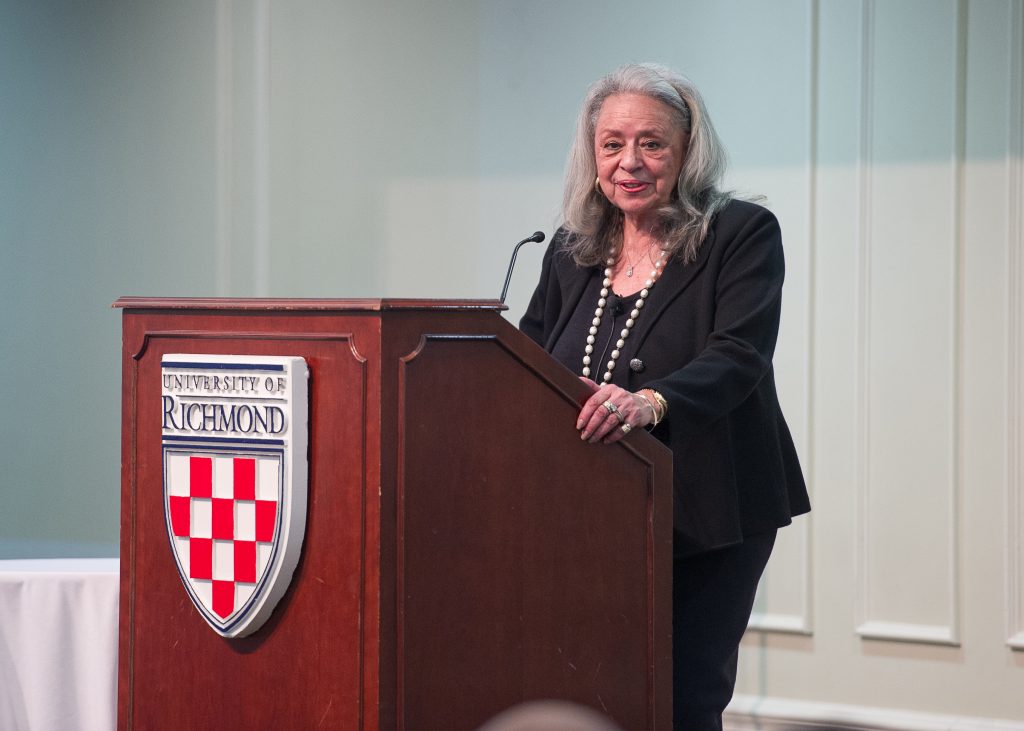 Perhaps the most important lesson I took away from Dr. Vivian Pinn’s remarks to a large crowd of students, faculty, and community members is that leadership sometimes has to change perceptions. Through her decades-long career, Dr. Pinn refocused public health initiatives and research from the “bikini” notion of women’s health to a holistic view of whether and how women (and other groups) respond differently to treatments.
Perhaps the most important lesson I took away from Dr. Vivian Pinn’s remarks to a large crowd of students, faculty, and community members is that leadership sometimes has to change perceptions. Through her decades-long career, Dr. Pinn refocused public health initiatives and research from the “bikini” notion of women’s health to a holistic view of whether and how women (and other groups) respond differently to treatments.
Indeed, Dr. Pinn recounted that, when she first joined the NIH, studies routinely failed to include women or minorities. Including these groups, she insisted, is not a matter of political correctness but good science: the discovery of how women respond to treatment is a key to saving lives. Beyond this, there are equity reasons to make the discoveries. Health inequities may form and persist because not all groups respond the same way, at a cellular level, to the same treatment. Due in some measure to Dr. Pinn’s extraordinarily compelling scientific case, women and minority groups are now included in clinical studies supported by the NIH. The next challenge Dr. Pinn shared is to consider lifespan inclusions.
The Jepson School Leader-in-Residence has many insights to offer our students. Many of these come by way of example, as her career has been distinguished by leadership at every turn. She has long been a vocal and effective advocate for women and minorities in biomedical science careers and has received many honors recognizing her leadership achievements. Most recently, the University of Virginia renamed its main medical building, Pinn Hall.
Dr. Pinn spoke about institutional and individual features of leadership. She remarked that while many institutional barriers to equity in the biomedical sciences have been overcome or removed, challenges still remain. The pipeline of minority and female candidates in medical professions has improved, but there are still times when a woman (or minority) candidate is more likely to stop out of the progression and not return. In this context, the key barrier to success today is the same as it was 20 years ago, and it’s a tough one to overcome, Dr. Pinn remarked. In many cases, women have larger shares of family responsibilities, creating a stronger pull on women than men to move away from work outside the home. Good candidates for careers in biomedicine may then be lost as they step outside the workforce. Dr. Pinn spoke eloquently about the need for individuals who have influence (mentors or associates) to encourage people (or, at minimum, to not discourage them). At the same time, institutionally, there is a need for policies that, whenever possible, alleviate the difficulties associated with dual roles in the home and work force. Such institutional changes would not be “women’s policies,” Dr. Pinn insisted, but family friendly policies.
